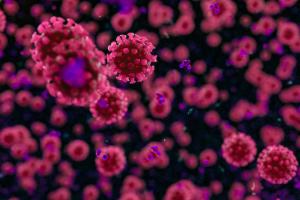After months of rigorous clinical research studies coordinated by leading scientific experts, a COVID-19 vaccine is now in our near future. Below are some answers to commonly asked questions about the vaccine from chief medical officer James Matera, DO, who led the clinician team response to COVID-19 at CentraState, and Ashish Awasthi, MD, board-certified cardiologist and internist at CentraState.
Updated January 5, 2021
Why is it important to get the vaccine?
The vaccine is really the stepping stone to getting out of this pandemic. There’s no doubt that we’re now in a second wave. We’re seeing healthy people become vectors by getting the virus and giving it to others at higher risk. We’re also seeing clusters in new settings. Prevention is key, and the best way to do that is through vaccination.
How were these vaccines developed so quickly, and were some safety mechanisms overlooked in the process?
These vaccines do not have a live virus; rather, they are based on using a part of the viral RNA. The longest time for vaccine development historically has been the growth, culture, sterilization, and attenuation of the live virus, which would take from 15 to 18 months out of the total of 24 to 30 months of vaccine development. Since there is no live virus in these vaccines, that process has been shortened by 15 to 18 months without shortening the evaluation processes.
How do the vaccines work?
While the COVID-19 vaccines in clinical trials have different mechanisms of action, the Pfizer/BioNTech and Moderna vaccines are unique in that they are the first-ever vaccines to use an mRNA genetic process. These vaccines contain a specific strand of mRNA, which is genetic material that’s like a set of instructions. The mRNA teaches the body’s cells how to make viral proteins. These proteins mimic the ones in viruses, and they trigger the body’s immune cells to make antibodies against COVID-19. If a person is infected with COVID-19, the body recognizes the proteins on the virus, and the immune system can then destroy the virus.
What are the main differences between the Pfizer/BioNTech and Moderna vaccines?
While both are safe and have approximately 95% efficacy, the biggest difference is in storage temperatures. Both need to be frozen, but the Pfizer/BioNTech vaccine must be stored as low as -80° C – colder than winter in Antarctica. CentraState has invested in a special ultra-cold chain storage freezer for this purpose and is one of about 40 New Jersey hospitals thus far that can accept the Pfizer/BioNTech vaccine. The Moderna vaccine’s storage requirements are more along the lines of a regular freezer.
Another key difference is dosing. Both require two doses, but the Pfizer/BioNTech vaccine doses should be given approximately 21 days apart, and the Moderna vaccine doses should be given approximately 28 days apart.
How effective and safe are these vaccines?
The science behind these vaccines is solid, and both have very good efficacy and safety profiles. The Pfizer/BioNTech vaccine is 95% efficacious in clinical trials, and the Moderna vaccine is 94.5% efficacious. Efficacious means how effective they are in clinical trial settings. Neither vaccine has shown any serious safety events to date. And neither contains live COVID-19 virus, which provides further safety reassurance.
How long does immunity from the vaccine last?
It’s not clear yet how long immunity from the COVID-19 vaccine will last. More information gained from ongoing clinical trials and the actual vaccination program will help answer these questions in time.
Will getting the vaccine allow us to relax social distancing, masking, and general use of PPE?
In short, NO! Social distancing, masking, and the appropriate use of PPE will remain in place, even after the vaccinations have started. It is imperative that we do not allow ourselves to fall into unsafe habits just because a vaccine is available. Rather, we’ll need to follow the guidance of local, state, and federal authorities.
I am concerned about side effects from the vaccine, what has been reported and how worried should I be?
With the Pfizer and Moderna mRNA Vaccines, the reported side effects in clinical trial have included injection site pain, fatigue, headaches, muscle pains, chills, fever, and joint pain. These are usually temporary and subside in a few days. We have to weigh the risks (temporary adverse effects) vs. the benefits (potential protection against COVID-19 disease) when making the decision to vaccinate.
Other, more serious side effects are rare including:
- Swollen lymph nodes
- Bell’s Palsy (4 patients in Pfizer studies and 3 in Moderna studies)
- This is very similar to what you would expect in the general population, and also has been seen with other vaccines.
- There is not a causal relationship identified at this time.
- Anaphylaxis and severe allergic reactions
- These are very rare and likely occur within the first few minutes of vaccination.
- Patients with known SEVERE reaction to vaccines may want to consider not vaccinating.
- Patients are monitored for 30 minutes after their injection for these reasons.
In summary, the COVID-19 mRNA vaccines have been found to be safe and they do support up to 95% efficacy for protection against COVID-19 disease.
Are the side effects worse after the second dose?
Both Pfizer and Moderna require an additional “booster” dose after the first dose (21 days for Pfizer and 28 days for Moderna) to allow for the best protection. Efficacy after the first dose is reported around 50-52% and that increases to 95% after the second dose.
This is, in part, due to enhanced immune responses after the first dose. The symptoms outlined above have also been reported after the second doses of both vaccines, sometimes with increased frequency and sometimes, more pronounced symptoms. This is again related to your immune system doing its job to impart protection.
Both Pfizer and Moderna Products are safe and efficacious with 95% efficacy. There have not been identified differences in the products in that regard, so one is not superior to the other. Also note, we do not choose what vaccines we are given, that is determined on a State distribution level, therefore, you cannot CHOOSE which vaccine you get (nor can we!).
Can I get COVID-19 after the vaccine?
You cannot contract COVID-19 FROM the vaccine, but you can still acquire COVID-19 even though you were vaccinated, especially during the interim period between doses, before full effectiveness occurs.
In the mRNA products, there are no viral particles or material that would cause a COVID-19 infection. Your body will take the injected mRNA into the cells (not the nucleus) and start to generate the spike protein of the Coronavirus. When this protein is released into your system, you will develop antibodies to it that will patrol your system in the event of COVID-19 infection, then they go to work.
Should I take the vaccine if I had COVID-19 or got Monoclonal Antibodies Infused?
It is very unlikely that you will be re-infected with COVID-19 for 90 days after initial diagnosis (and same for infusions of monoclonal antibodies). The recommendations for vaccination do not specifically state that you CANNOT take the vaccine, but the current evidence states that you can consider waiting a period of 90 days from acute COVID-19 or monoclonal antibodies.
What other options are there for vaccination?
As of 12/30, the UK approved their AstraZeneca/Oxford vaccine for use. This has not yet been approved in the United States. This is a different vaccine technology using double-stranded DNA vaccine to build specific proteins. This genetic material for the Coronavirus spike protein is introduced into a viral vehicle (adenovirus) and injected. The cells then engulf the adenovirus (with the gene for the spike protein) into the cells and then, in the nucleus, translates mRNA which leaves the nucleus and makes spike proteins similar to the other vaccines.
Several other vaccines are in the Phase 3 clinical testing as well.
Why have these vaccines been approved so rapidly, are they being “rushed?”
Researchers have been studying and working with mRNA vaccines for decades. Interest has grown in these vaccines because they can be developed in a laboratory using readily available materials. This means the process can be standardized and scaled up, making vaccine development faster than traditional methods of making vaccines.
Having the genetic sequence of this virus early on helped the manufacturing of the vaccine run in parallel to the clinical trials. This is unprecedented in the vaccine development arena, and has led to a more rapid, but scientifically sound, process for trials, investigation, approval and distribution. There has been no evidence of any short cuts in safety with either vaccine or in the usual standard process required for approval.
Safety measures and oversight for all vaccines that are developed were followed in these cases, and will be for future vaccines. Ongoing safety monitoring as well as determinations of virus efficacy, length of “protection” and long term effects will continue to be studied long after the vaccines have been started.
We will continue to update information on COVID-19 vaccines as it becomes available.
This article is published by CentraState Healthcare System to provide general health information. It is not intended to provide personal medical advice, which should be obtained directly from a healthcare provider.





